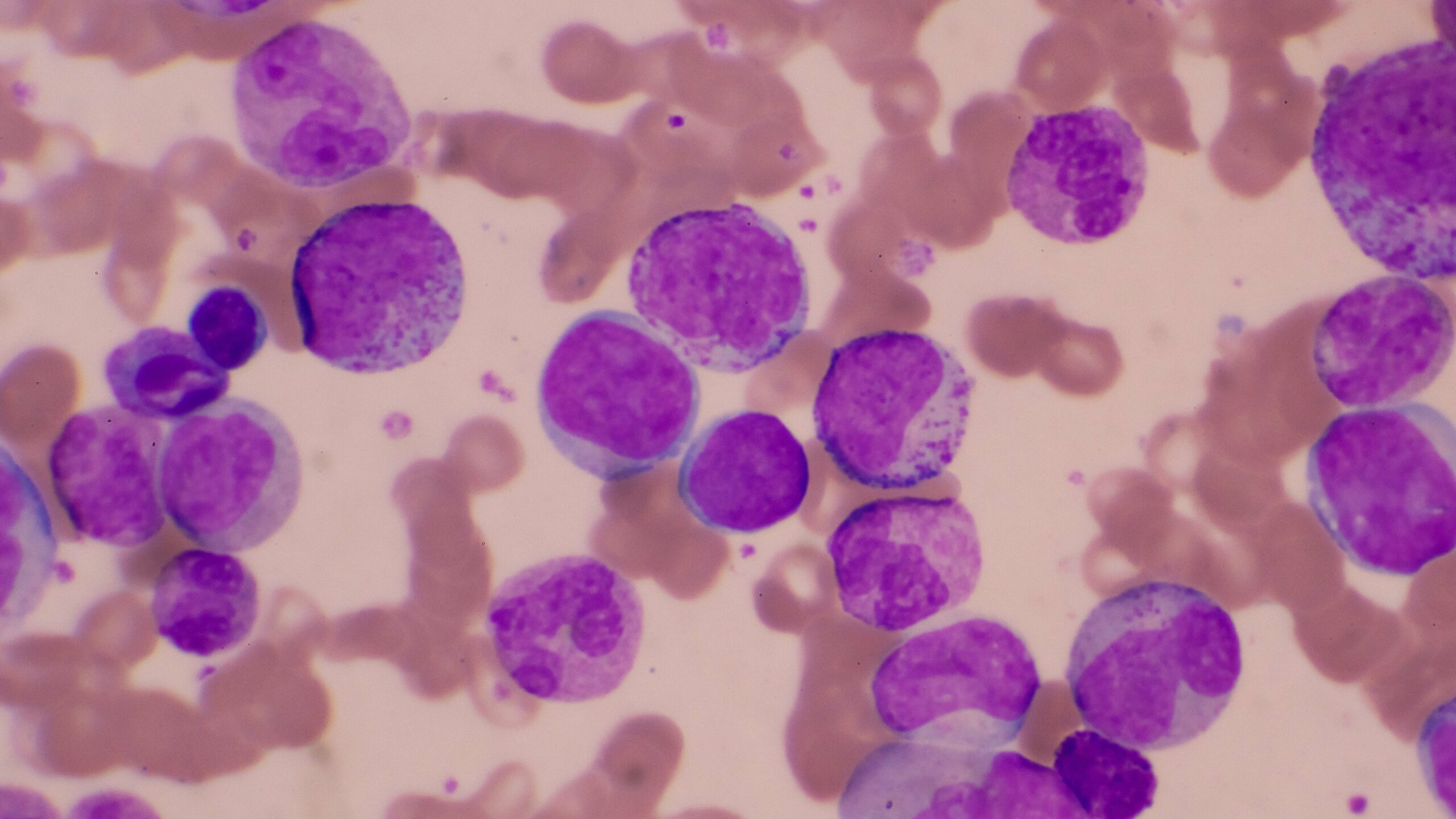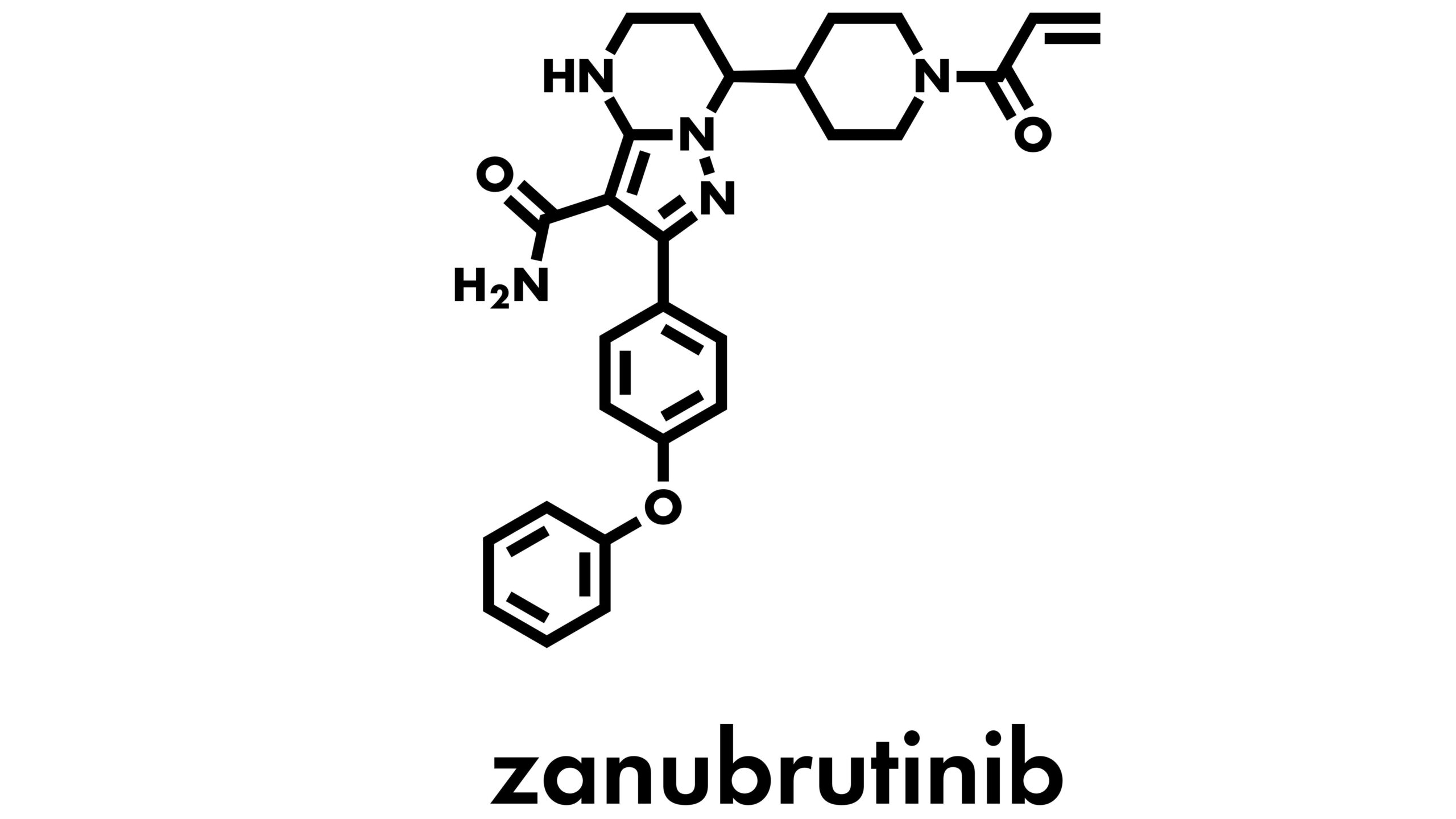
In the phase 2 CLL-Frail trial, researchers evaluated acalabrutinib monotherapy in patients with chronic lymphocytic leukemia (CLL) who were aged 80 years or older or had a FRAIL scale score of 3 or more. The FRAIL scale questionnaire assesses fatigue, resistance, ambulation, illnesses, and loss of weight in patients who meet the criteria for the Fried frailty phenotype.
In their poster at the 17th International Conference on Malignant Lymphoma, the authors noted this subgroup of patients is underrepresented in clinical trials despite making up approximately 20% of the overall CLL population. Based on their first interim analysis, lead author Florian Simon and colleagues suggested that acalabrutinib monotherapy had a safety profile comparable with previously published data, even among this patient population.
Acalabrutinib Appears Safe in High-Risk Patients
The CLL-Frail cohort consisted of 30 patients with a median age of 82 years, of whom 50% had a FRAIL score of 3 or more. A total of 19 (63%) patients were treatment-naïve, with all other patients having a maximum of 1 prior treatment. Previous therapies included:
- Chemoimmunotherapy (73%)
- Ibrutinib, obinutuzumab, and venetoclax (9%)
- Bendamustine, ibrutinib, and ofatumumab (9%)
- Obinutuzumab and venetoclax (9%)
The median Cumulative Illness Rating Scale score was 10, and 73% of patients had a score of 7 or more. The median Eastern Cooperative Oncology Group score was 1, and 77%, 63%, and 10% had Binet stage A, IgHV-unmutated, and TP53-altered disease status, respectively.
At the data cutoff in November 2022, the median observation time was 8 months, and 21 patients were still receiving acalabrutinib monotherapy. The study noted 5 patients discontinued due to adverse events (AEs), 2 due to death, and 2 due to withdrawal of consent. One death was considered treatment-related.
All patients experienced at least 1 AE, with a total of 200 events. Investigators reported 35 (18%) AEs were grade 3 or higher and 15 were serious AEs, of which 8 (53%) were deemed related to acalabrutinib treatment. Researchers observed 1 case each of grade 2 and grade 3 atrial fibrillation and 2 serious cardiac AEs that occurred in patients with preexisting atrial fibrillation and hypertension.
In short, the authors reported that acalabrutinib monotherapy for CLL in a “representative cohort for this age group, usually exempted from clinical trials,” appeared to have safety comparable with the general population.
More from ICML: Can Reducing Dosage Manage Cardiac Toxicities in Ibrutinib?





 © 2025 Mashup Media, LLC, a Formedics Property. All Rights Reserved.
© 2025 Mashup Media, LLC, a Formedics Property. All Rights Reserved.